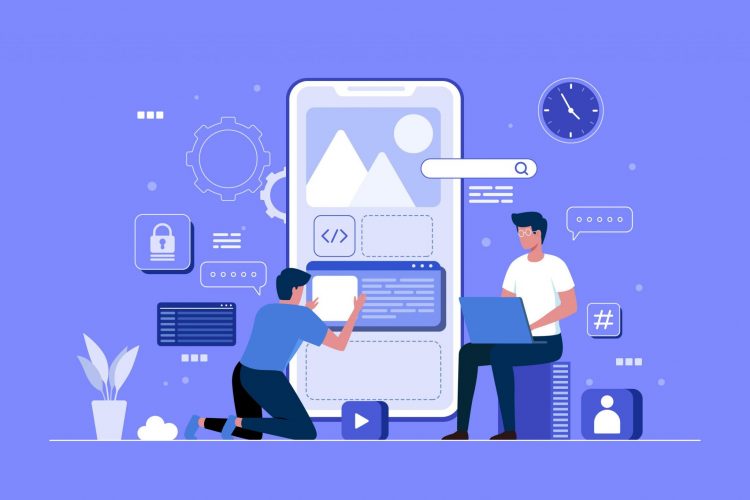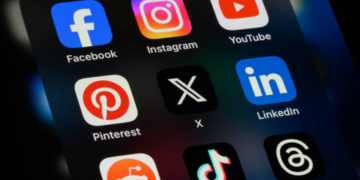Ever wonder how Facebook tags you automatically on a friend’s picture? Spotify’s “Discover Weekly”, which features great Spotify songs, is another example. These companies use machine learning to create “WOW” reactions in their mobile apps.
You are at the right place if you’re interested in incorporating machine learning into your mobile app. This article will discuss the most common machine learning algorithms and offer ideas for how to integrate machine learning into a mobile app development that is industry-specific. We’ll also be sharing the best machine learning examples and explaining how they work.
Let’s first discuss why machine learning should be integrated into mobile applications.
List of benefits of machine learning:
-
-
- 76% of businesses saw an increase in sales after ML integration.
- ML technology predicts better user behavior, optimizes processes, and leads up-sell and cross-sell.
- 50% of companies are using machine learning to improve their marketing strategies
- ML helped several European banks increase their product sales by 10%
-
Let’s now dive deeper into the technologies that underpin Machine Learning algorithms.
Different types of Machine Learning algorithms are available for Android and iOS apps
Machine Learning (ML), a technology that automates data processing and decision-making algorithms, is a form of machine learning. These algorithms are able to improve their performance based on the results of their work. This is called “learning on the move.”
The more precise ML algorithms are made with more data, the better.
Machine Learning employs the following algorithms to build models that reveal connections:
-
- Supervised learning is when an algorithm learns by using example data and the associated target responses. These data could include numeric or string labels, such as classes and tags. ML can then predict the correct answer if presented with new examples.
- Unsupervised learning.ML learns by looking at examples and not having to look for answers. The algorithm thus determines data patterns by itself.
- Reinforcement Learning. Developers train ML algorithms so that they can make certain decisions from the environment. This allows the machine to capture the most accurate knowledge possible and make precise decisions.
Machine learning apps can be used in specific industries
Machine learning has many applications. Machine learning can be used in many different industries to create mobile apps. These are some machine learning use cases in mobile apps that are industry-specific.
1. AI-powered financial assistant
Let’s look at how machine learning is used to finance. These mobile apps can be used to gain insights into your finances. These apps are usually developed by banks to offer clients additional value. The app uses machine learning algorithms to analyze your transaction history, predict future spending, track spending patterns, and give financial advice. Erica, a mobile voice assistant developed by Bank of America, is an example. Over Erica’s financial assistant Erica, Currency offers more personal and convenient banking for 25 million mobile app users.
2. Fitness apps for mobile devices with ML
These workout apps are powered by machine learning and analyze data from smartwatches, wearables, and fitness trackers. Based on the user’s goals, they receive personalized lifestyle advice. To create customized fitness plans, the algorithm analyzes user’s current health and eating habits. One of the most popular fitness apps that uses machine learning is Aptiva coach. It offers a variety of workouts and even custom Aptiva workouts. The app also tracks user progress.
3. Mobile applications for healthcare with ML
Many condition-based mobile apps make it easy to track heart diseases, diabetes, epilepsy, migraines, and other conditions. These apps use machine learning algorithms to analyze user input and predict possible conditions. They also notify doctors about current conditions for faster treatment.
4. Transport mobile apps
Mobile apps for logistics, such as Uber Trucking or Fleet Management, must provide drivers with current information on traffic conditions. These apps then optimize roads based on current conditions to avoid traffic jams and deliver cargo on time. Developers integrate machine learning algorithms with traffic prediction software into road optimization mobile applications to receive this traffic information before they happen. This algorithm analyzes historical traffic data and predicts traffic patterns for a specific day and time. Learn more about machine learning applications in transportation by reading the article How AI is changing logistics.
5. E-commerce
Machine learning algorithms can be used in a variety of ways by online retail mobile apps. These algorithms can be used to offer more relevant product recommendations to buyers based on their purchase history, credit card fraud identification, and visual search. You can find more machine learning applications in mobile eCommerce apps by reading the article on how online apparel retailers can leverage AI to sell online.
Mobile Application Examples that are Using Top Machine Learning
Innovative algorithms improve the user experience on their mobile devices and bring new machine learning mobile app ideas. Below is a list of the top machine learning apps.
1. Snapchat
This application uses machine-supervised learning algorithms for computer visualisation. The algorithm for computer vision was developed by Looksery, anUkrainian startup. This company was soon acquired by Snapchat for $150 million. The mobile machine learning algorithm uses photos to find faces and add fun elements such as glasses, hats, ears, and more. We have provided a detailed explanation of how ML Snapchat filters operate in this article.
2. Yelp
The app uses supervised Machine Learning (ML) to improve user experience by recommending “Recommended For You” collections. The ML algorithm reviews each restaurant. The ML algorithm then determines which dishes are most popular based on how often the meal has been mentioned. Yelp also uses ML to collect, classify and label user-submitted photographs of dishes with different attributes. These attributes include “ambiance is elegant” and “good with children” with 83% accuracy.
3. Facebook
Facebook uses machine learning algorithms in many ways. After the ml algorithm has analyzed your profile, interests, current friends and their friends, Facebook suggests new friends to you in the “People You May Know”. The algorithm can also pull in other factors to suggest people you might know. Facebook also uses machine learning in Newsfeed, targeted ads and facial recognition.
4. eBay
ShopBot, an online store that uses Reinforcement Machine Learning algorithms to recommend products to customers, is called ShopBot. ShopBot is able to use Machine Learning algorithms to help them understand their users’ needs. Chatbot processes the text and images of users and then finds the best match. The chatbot at eBay has been highly praised for its ability to understand context and friendly language.
ShopBot users are three times more likely to ask questions regarding specific products than people browsing eBay’s stock.
Closing Thoughts: Machine Learning in Mobile Apps
ML algorithms can improve customer experience, loyalty, engagement, and many other aspects. This technology is suitable for any mobile app that requires predictions and has enough data.
Machine learning has many applications in many industries such as banking and healthcare. Depending on the needs of your business, you may be able to leverage any one of these ML algorithms. Last but not least, you need to hire an experienced team to develop machine learning apps.
Source by techresearchonline.com





























